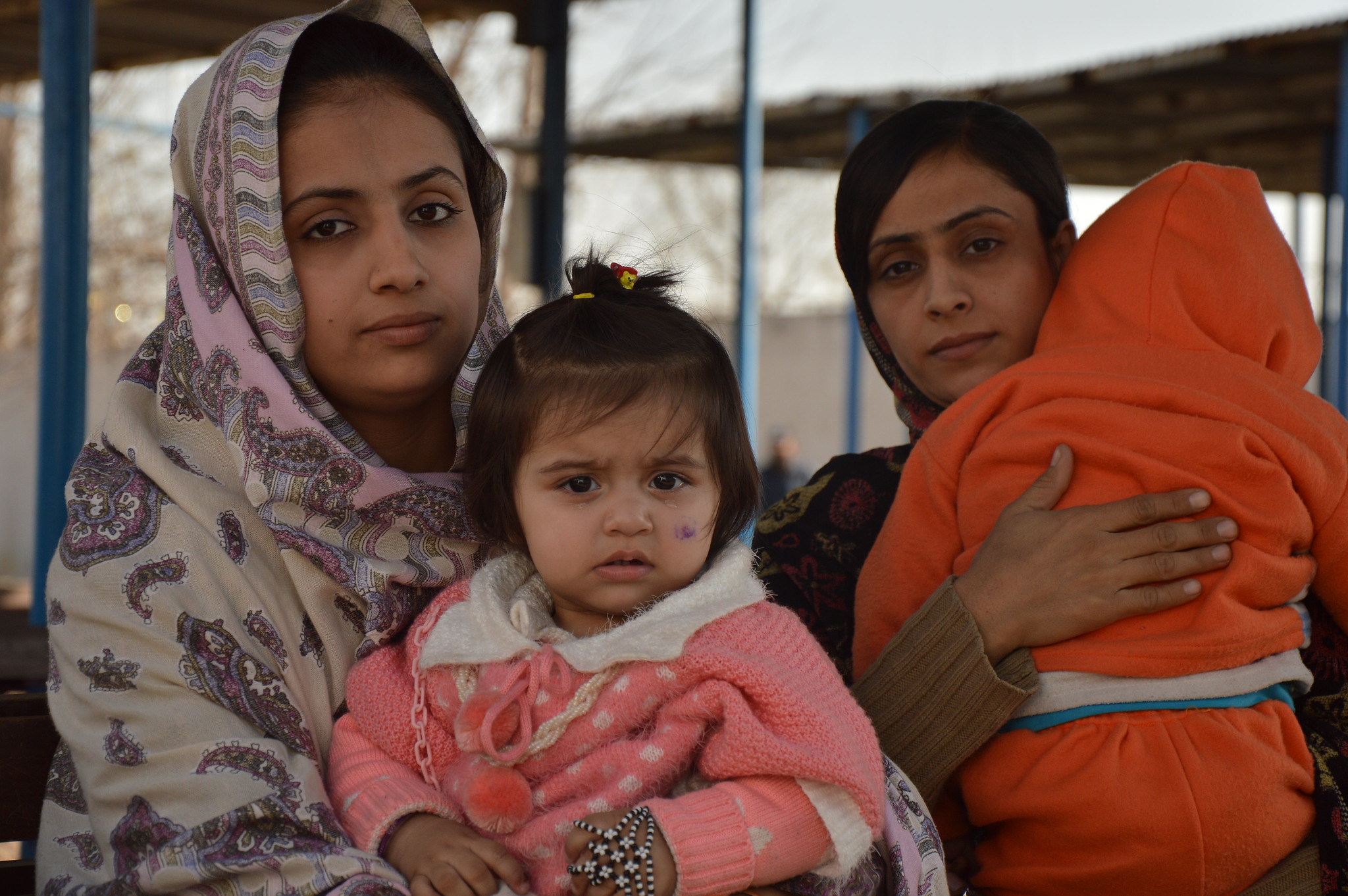By Rana Elmir and Ivy O. Suriyopas
For nearly two decades, Afghans suffered and sacrificed in the face of the United States’ longest war while the U.S. government made promises that remain unfulfilled. And now almost two and a half years after the troop withdrawal, tens of thousands of Afghans currently live in limbo in the U.S., the latest in a string of disappointments they have endured.
Congress has a bipartisan solution in hand. The Afghan Adjustment Act would extend a pathway to legal status for the approximately 77,000 Afghans who were evacuated to the U.S. after the fall of Kabul. But the legislation has languished for months with no sign of movement. And while the Biden administration has offered short-term stopgaps to protect those individuals, a future administration may not be so inclined, raising the stakes for an immediate permanent solution.
It’s time instead for philanthropy to step up and play a role. Foundations have the opportunity and the moral imperative to be bold and partner with community-led organizations to not only deploy resources but also to amplify their advocacy for long-term permanent solutions. Funders need to fund power-building, advocacy, legal services, and capacity-building initiatives of Afghan, BAMEMSA, and refugee-led groups beyond the rapid response grants deployed in 2021.
Beyond grantmaking, philanthropy needs to leverage its influence by amplifying the advocacy demands of impacted-led groups. Support the work of groups on the ground that have been advocating for a legislative pathway that has historically been available to every other population that the United States has admitted to seek refuge.
The U.S. government has a long history of coming to the aid of countries experiencing turmoil, allowing people from former Soviet nations, Vietnam, and Cuba, for example, to seek protection in the U.S. Congress in the past has even allowed those individuals and their families to adjust their status to lawful permanent residency, which allows them to live and work in the U.S. indefinitely and to seek citizenship after a certain length of time. But so far, however, Congress has yet to follow through on the behalf of Afghans.
In 2021, thousands of Afghans were evacuated to the U.S. through the humanitarian parole (HP) program, a temporary relief mechanism designed to provide support for those in crisis. The Biden administration later extended humanitarian parole for an additional two years, meaning protections will run out by early 2025.
As a practical matter, having humanitarian protections extended for just two years means the work permits of Afghans are only valid for that period, which limits their ability to find stable employment or obtain valid driver’s licenses in most states. Stable employment influences access to housing, and Afghans are facing the same pandemic-fueled affordable housing shortage as others. Meanwhile, backlogs and other challenges have limited their ability to seek other forms of immigration relief that would allow them to stay in the U.S., such as asylum, special immigrant visas, or Temporary Protected Status, with fewer than seven percent gaining permanent status through those avenues.
If the Afghans under humanitarian parole are unable to renew their status or receive another form of relief, they will lose their immigration status and be vulnerable to deportation. The United Nations High Commissioner for Refugees maintains “a non-return advisory” for Afghans due to ongoing volatility in the region, deterioration of the Afghan economy, the dangerous humanitarian situation – especially for women and girls – and climate-related hazards.
This is where the philanthropic community can make a difference. The patchwork of rapid response funding deployed to Afghan-serving organizations has not been sufficient or sustainable, coming after years of cuts to the refugee resettlement system by the previous administration. Without meaningful investments and deep philanthropic partnerships with these community-led groups, the worst of the crisis facing Afghan families is yet to come.
Foundations are uniquely positioned to use their influence to educate and advocate in times of injustice, while also amplifying the mission-driven work of their grantee partners. As Stephanie Martinez of the Peter E. Haas Jr. Family Fund put it, funders must use their “privilege and power to tackle the challenges that deny individuals the freedom to stay, move, work, transform, and thrive in the communities we support.”
The organizations at the forefront of this response are rooted in – and informed by – their communities. This allows them to have an outsized impact considering the often limited financial resources at their disposal. It is critical that we strengthen the infrastructure of this network of groups and resource them in line with this impact – regardless of their size and structure – through general, multi-year funding that provides essential flexibility and stability. Rather than asking whether these community-led groups can “absorb our funds,” a phrase that far too many groups have heard far too often, we must ask ourselves whether we can afford to conduct business as usual.
While many immigration funders are answering the call to respond to the crises facing Afghan migrants in the U.S., they cannot do it alone. Providing an equitable and humane path for Afghans – as well as other migrants – is not only an immigration issue, but is inextricably linked to the ongoing struggles toward social justice, racial justice, and an inclusive democracy. It will take the involvement of the broader philanthropic sector for us to finally make good on the promises we made more than two decades ago by offering Afghan migrants the support and protection they so urgently need.
Rana Elmir is the Program Director of the RISE Together Fund at the Proteus Fund. Ivy O. Suriyopas is the Vice President of Programs at Grantmakers Concerned with Immigrants and Refugees.
Photo by EU Civil Protection and Humanitarian Aid on Flickr, is licesned under CC BY-NC-ND 2.0.
